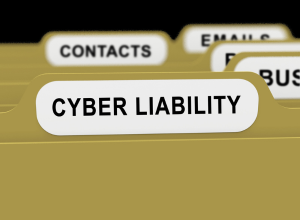
Enhancing Security in an Evolving Digital Era
In an industry traditionally dominated by bricks, mortar, and heavy machinery, construction companies might not consider themselves prime targets for cyberattacks. However, as digital transformation reshapes the construction landscape, the integration of advanced technologies—from Building Information Modeling (BIM) to IoT devices on job sites—brings new vulnerabilities. Cyber liability insurance is no longer a luxury; it’s a necessity for construction firms looking to protect their operations and enhance their overall security posture.
The Growing Cyber Threat to Construction Companies
Construction companies are increasingly reliant on digital tools for project management, communication, and financial transactions. This reliance makes them attractive targets for cybercriminals. Common threats include:
- Ransomware Attacks: Disrupting project timelines by encrypting critical files and demanding payment for their release.
- Phishing Scams: Tricking employees into revealing sensitive information or transferring funds to fraudulent accounts.
- Data Breaches: Compromising confidential client data, blueprints, and intellectual property.
- IoT Vulnerabilities: Exploiting weak security in connected devices on job sites.
The financial and reputational consequences of a cyberattack can be devastating, especially in an industry where project delays and compliance violations can quickly spiral into significant losses.
What Is Cyber Liability Insurance?
Cyber liability insurance is designed to help businesses recover from the financial fallout of cyber incidents. For construction companies, this coverage can include:
- Incident Response Costs: Covering expenses related to investigating and mitigating a breach.
- Legal and Regulatory Expenses: Addressing lawsuits or penalties arising from data breaches or non-compliance.
- Business Interruption Coverage: Compensating for lost revenue during downtime caused by cyber incidents.
- Extortion Payments: Handling ransomware demands and associated costs.
- Public Relations Support: Managing reputational damage and restoring stakeholder trust.
Enhancing Security Posture Through Cyber Insurance
While cyber liability insurance provides financial protection, its benefits extend far beyond monetary compensation. It plays a critical role in strengthening a construction company’s overall security posture by:
- Encouraging Proactive Risk Assessments: Many insurers require companies to undergo regular cybersecurity audits as part of the policy. These assessments identify vulnerabilities and recommend improvements.
- Promoting Employee Training: Policies often include resources for educating employees about cybersecurity best practices, reducing the likelihood of human error.
- Supporting Incident Response Planning: Insurers frequently offer access to cybersecurity experts who can help develop and test robust incident response plans.
- Facilitating Compliance: Cyber insurance policies ensure companies stay updated on evolving regulations, reducing the risk of fines and legal challenges.
Choosing the Right Policy
Not all cyber liability insurance policies are created equal. Construction companies should consider the following when selecting coverage:
- Industry-Specific Risks: Ensure the policy addresses threats unique to the construction sector, such as attacks on IoT devices or theft of proprietary designs.
- Coverage Limits: Assess whether the policy’s limits are sufficient to cover potential losses, including indirect costs like reputational damage.
- Incident Response Support: Look for policies that include access to cybersecurity experts, legal counsel, and public relations professionals.
In today’s interconnected world, cyber liability insurance is a cornerstone of a comprehensive risk management strategy for construction companies. Beyond providing financial protection, it fosters a culture of cybersecurity awareness and resilience, helping businesses mitigate risks and maintain operational continuity. By investing in the right policy, construction firms can build a solid foundation for digital security, ensuring their projects and reputations remain intact in the face of evolving cyber threats.
